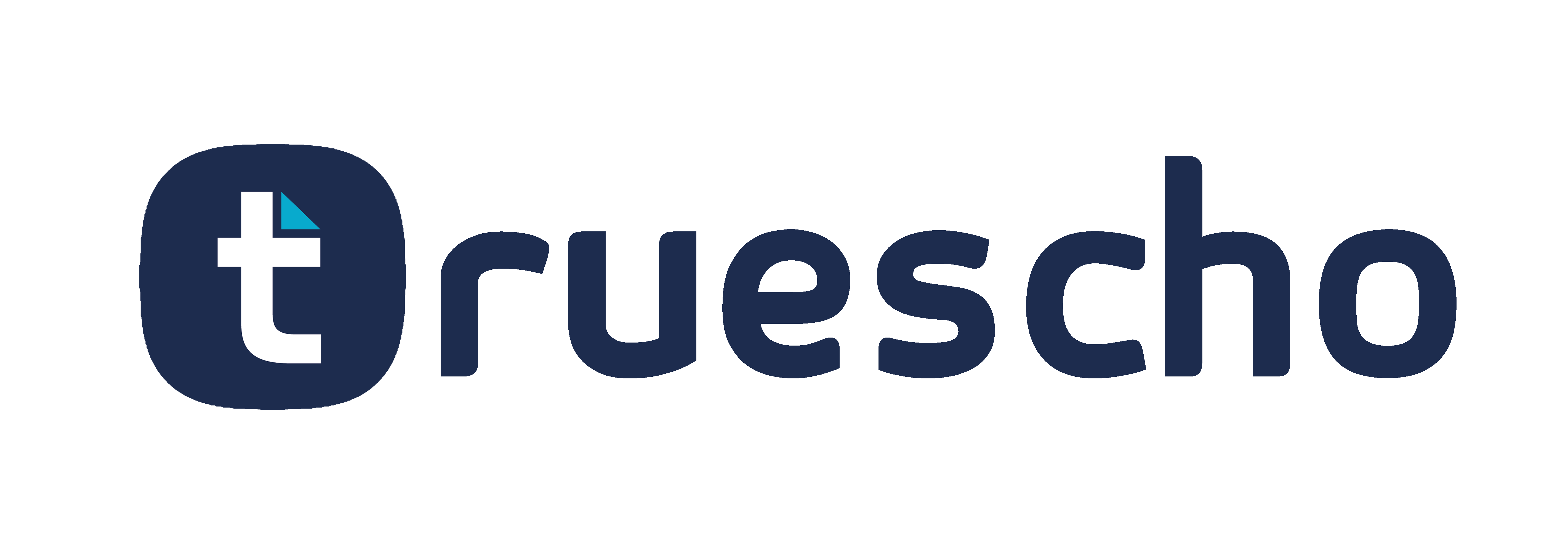Scholarship Interview Questions | Scholarship Interview Tips
Scholarship Interview: After you apply for a scholarship, the awarding organization may invite you for an interview. Scholarship interview questions are typically open-ended questions that a representative from the awarding organization will ask to learn more about you. Your responses to the questions can help determine your eligibility for the award.
In this article, we share examples of common scholarship interview questions with sample answers, and then we offer tips to help you answer scholarship interview questions.

1. Scholarship Interview Questions | Tell us about yourself
This is an open-ended question that allows you to lead the conversation. The interviewer wants to know what makes you stand out from others. They are looking for specifics, not generalities. You can start with something general about yourself and then narrow it to a specific anecdote or point.
Highlight your achievements, personality traits, skills, and experiences that will make you an ideal candidate for the scholarship. You can start with a brief bio or highlight key points on your resume.
Example: I’m a sophomore at Carlsbad High School. I’ve been passionate about technology and its impact on human life since my early childhood days. Over the past few years, with the help of my parents and teachers, I managed to explore this passion by taking up extra courses in programming languages such as C++, Android app development, and graphic design. My hobby is to help fellow students with their Android apps and program games for them.
2. Were you involved in any activities at school or in your community?
This scholarship interview question is especially great for students with leadership roles. Talk about your experiences, showing that you are a leader through your involvement in clubs or sports. You can also talk about how you contribute to your community or help people in need.
Example: Yes, at my school I am the editor of our school newspaper. As an editor, I manage other students who write articles for the paper and come up with topic ideas. Additionally, I am involved in robotics and the swim team. I enjoy having a balance between physical and intellectual activities because they keep me active in different ways.
3. Scholarship Interview Questions | What do you want to do with your career?
Your response to this question should lay out a plan for your future. Explain what or who inspired you to pursue a particular field and why. Include how this scholarship will help you on your career path and what you would like to do once you have completed college or the program.
Example: “I first realized I wanted to take care of people when my sister was recovering from surgery four years ago and needed help. Today my dream is to become a registered nurse so I can dedicate myself to helping others in an exciting and challenging environment. After getting my bachelor’s degree in nursing here at Jackson University, I want to work in the local health care system to gain experience. Then, I intend to pursue my master’s degree in nursing, so I can become a nurse practitioner. I see myself working in critical care in a hospital near my home in Dallas so I can be close to family when they need me.”
4. Tell us about your greatest strength and greatest weakness
With this question, you want to make sure to balance each answer. Highlight a strength and then discuss how you have overcome a weakness in the past or will overcome it in the future. Come up with a list of strengths and weaknesses which you think will be most valuable for your college application, such as strong analytical skills paired with organization issues or high creativity but limited time management ability.
Make sure not to skirt around the question of weaknesses. It can be common for students to say that they’re perfectionists, for example, which some may even not consider a weakness. You want to show that you’re capable of reflection and recognizing your faults, but also that you’re willing and able to improve them.
Example: My greatest strength is that I am able to prioritize what needs to be done first today and which tasks can wait until tomorrow. This allows me to be efficient with my time management skills so that I am able to succeed in school and my extracurricular activities. However, my greatest weakness is that I can become too focused on one task and forget about other assignments or projects which need attention. I’ve been working on this by setting reminders in my calendar throughout the day.
5. Tell us something about yourself no one else knows
This question gives you the opportunity to share a piece of information that represents you in the best possible light. You can reveal something interesting or unique about yourself such as an accomplishment, hobby, talent, interest, experience, etc. as long as it’s positive and not too personal.
Example: I am proficient in sign language. This has always been a passion of mine, as I wish to work with children in a clinical setting who are deaf or hard of hearing one day. I have studied sign language throughout high school, and I plan to continue learning at university so that I can interact with these children without any language barrier.
6. Scholarship Interview Questions | Who is your role model?
Your answer to this question can tell your interviewer about what type of person you hope to become one day. Examples of role models can include family members, professors, historical figures, politicians, activists and more. Describe why you admire that individual and which of their qualities you would like to emulate.
Example: “My role model is my late grandfather, who at age 25 started a textile company that grew into a successful enterprise. He was a brilliant man who built his dream from the ground up and gave back to the community throughout his life. I also admire the way he was able to find a work-life balance and spend time with his family. He is the person who inspired me to pursue a business degree.”
7. Scholarship Interview Questions | Tell us about your leadership experience
This question aims to determine whether you have a sincere love of learning. You do not have to give specific examples of how you have thrived in the class. However, you should be able to explain what you like about that subject.
Example: I previously served as one of four co-presidents for my high school’s Amnesty International club. In this role, I organize and supervise the organization of all meetings and events that we attend to raise awareness about social justice topics such as refugees or endangered species. This experience has taught me how to effectively manage a team and meet multiple deadlines in an organized manner.
8. Scholarship Interview Questions | Why did you choose this scholarship or university?
Use your response to highlight your passion for the university, industry or subject. Describe what aspects are most important to you.
Example: “I chose Jackson University because its Young Scientists of America program is one of only three in the country. Having the opportunity to work in its state-of-the-art quantum physics lab would allow me to gain hands-on experience using the same technology and equipment I would need to use in my career. While I was visiting, the students and professors were welcoming, and I immediately felt at home.”
9. Scholarship Interview Questions | Why do you deserve this scholarship?
Look at this question as another opportunity for an interviewer to know more about you. You applied for this particular scholarship for a reason, so be open and honest. The interviewer wants to see that you have a personal interest in the scholarship and that it’s not just another bid for college funds.
Example: “My cousin has cystic fibrosis, and I’ve seen pediatricians at their best. That’s why I want to care for kids with chronic conditions. Medical school is expensive, and this scholarship will help me accomplish my goal of becoming a doctor and helping sick kids like my cousin.”
10. Scholarship Interview Questions | What has been one of your greatest achievements?
Use this opportunity to explain a significant accomplishment or project you worked on. Explain why it was important to you beyond the achievement itself.
Example: “I am an editor on my school’s yearbook staff, and last year we won the Interscholastic Award for Best Yearbook. Earning this award has been one of my proudest moments because, toward the end of the school year, we were unsure there would be a yearbook. We battled funding issues and had to find a new printer in mid-March, but we overcame those obstacles and maintained our dedication to quality to produce a beautiful and impactful yearbook.”
11. Scholarship Interview Questions | Where do you see yourself in 5 years?
This is a question to determine how goal-oriented you are. It is also an opportunity to show the scholarship committee that you are ready for college and beyond. You want your answer to demonstrate that you have a plan moving forward; it doesn’t have to be super specific or set in stone, but you should have an idea of what you hope to achieve.
Example: I love economics. I love studying how the economy works and would like to work in banking, specifically in international sales at J.P Morgan. This career attracts me because it is fast-paced but also has great growth opportunities within the company. I also plan to actively work towards achieving my MBA as soon as I graduate.
12. Scholarship Interview Questions | How will you use the scholarship money?
This question is to make sure the scholarship will go to good use. The interviewer wants to know if you are serious about the scholarship application and will represent the scholarship sponsor in a positive light. If you have no real plan, it will be difficult for them to believe that this scholarship will be beneficial to either party.
Example: I would use this money towards my bachelor’s degree in Sociology with a specialization in Gerontology. Furthermore, I would use this opportunity to shadow a gerontologist and volunteer at a nursing home so that I can gain more insight into this field. Having this scholarship would allow me to worry less about finding a paid job to fund unpaid internships or shadowing opportunities, and would allow me to focus more on my studies.
13. Scholarship Interview Questions | Describe your personality in three words
The interviewer is looking for a glimpse of your personality to see if you’re a good fit. Make sure to concentrate on your unique talents and skills in your response.
Example: I would say that I am resourceful, creative, and proactive.
14. Scholarship Interview Questions | What questions do you have for us?
The interviewer is looking for you to display interest in the program by asking questions. Your response should be tailored to your particular interests, and any concerns that you may have had throughout this interview.
Examples: What was your favorite part of the scholarship program? (Or, what do students say is the best part of this program?). What are the former scholarship recipients doing now, particularly those in the fields I’m interested in?
15. Scholarship Interview Questions | Is there anything else you’d like to add?
It is crucial to show the interviewer that you are serious about this program. This question gives you an opportunity to make any additional points or highlight anything that you may have not covered in your response beforehand.
Example: I believe that I am an ideal candidate for this program because my educational background, and future plans align with what this program has to offer. I am excited to be a part of this program, and I look forward to hearing from you.
Scholarship Interview Tips
A good scholarship interview is vital to your scholarship application. It’s an opportunity to supplement your credentials with the kind of impression that can’t be put on paper. However for most, scholarship interviews are a major source of stress. Keep the anxiety level under control by thinking ahead and following these tips from a scholarship expert.
The Do’s:
- Be punctual! Check the scholarship interview time and get directions to the interview location before leaving your home. Check in when you arrive.
- Dress appropriately. Select conservative, semi-formal wear: slacks and a jacket or a dress shirt for men; dresses, skirts or pantsuits for women.
- Never wear jeans or t-shirts to an interview.
- Additionally you should have:
- Clean and polished conservative dress shoes
- Well-groomed hairstyle
- Cleaned and trimmed fingernails
- Minimal cologne or perfume
- No visible body piercing beyond conservative ear piercing for women
- Well-brushed teeth and fresh breath
- No gum, candy, or other objects in your mouth
- Minimal jewellery
- No body odour
- Make a good first impression. When you meet the interviewer(s), introduce yourself, make eye contact and use a firm handshake, but not too hard.
- Be brief and honest with your answers. Try to sum up your thoughts quickly. Interviewers will ask follow-up questions if they want to know more.
- Maintain eye contact with the interviewer(s) throughout the interview.
- Demonstrate interest and confidence.
- Have some questions ready for the interviewer(s). Prepare these questions in advance by researching the sponsoring organization, school or company.
- Remember to SMILE!! Don’t be shy.
- Show your appreciation. Thank the interviewer(s) for his/her time and consideration. Afterwards, send a thank you note.
- Practice interviewing with a friend.

The Don’ts:
- Assume the interviewer(s) are knowledgeable about you and your background-regardless of what you’ve included in your application.
- Be negative or critical about teachers, school, or friends. Interviewers value the individual who perceives difficult situations as challenging and interesting.
- Be afraid to say, “I don’t know” or ask questions. It’s better to ask for clarification than to miss an opportunity to produce an insightful answer.
- Use political, racial, ethnic, religious or other sensitive statements.
- Chew gum, bite nails, smoke, yawn, stretch, or slouch.

For more information about scholarships, kindly join our Telegram channel:
Read also:
Chevening Scholarship 2022-2023 | The Best to Study in The UK
Study Dentistry in Turkey 2022-2023 | The Best for International Students
Study Medicine in Turkey 2022-2023 | The Best for International Students
Best Courses to Study in Turkey 2022-2023
University of Amsterdam Scholarships for International Students 2022-2023
Holland Government Scholarship 2022-2023 for International Students
Ottawa University Scholarship for International Students 2022-2023
Rutgers chancellor’s Scholarship 2022-2023 | Great Opportunity to Study in the USA
Gates Scholarship in The United States 2022-2023 | Fully Funded
Stipendium Hungaricum Scholarship 2022-2023 | Fully Funded
Sabancı University Scholarship 2022-2023 (The Best Opportunity for international students)
Best Fully Funded Scholarships in Turkey 2022-2023 for International students
Koç University Scholarship 2022-2023 Best Opportunity for International Students
Best Universities in Turkey 2022-2023 for International Students
Study in Canada 2022-2023 (The Best choice)
Best UK Scholarships for International Students 2022-2023
Best Universities that Offer Full Scholarships to International Students 2022-2023
Fulbright Scholarship for International Students 2022-2023 (The Best to study in the USA)







